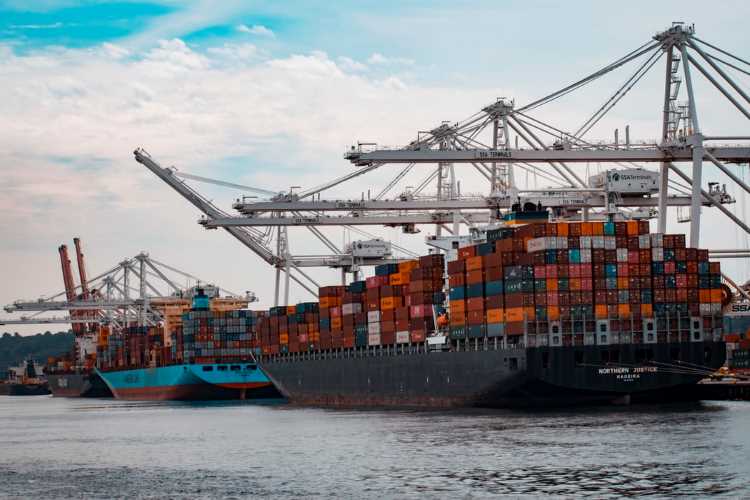
International cooperation across jurisdictions would be crucial towards formulating tax policies in an era of international interdependence. While fiscal capacities of developing countries have been under stress due to the tax planning techniques resorted to by the multinationals through transfer pricing, the efforts in the recent past through the G-20 BEPS Initiative are encouraging. But it would be interesting to watch as to how the multinationals would retort.
The IMF estimates that tax evasion has resulted in revenue losses of $500 billion to $600 billion annually. With a loss of $150 billion annually, in terms of their GDP, developing economies lose a lot on this account. The under-invoicing of exports and over-invoicing of imports by the firms in the global economy, in particular through intra-firm trade, has been resulting in a large drain of tax base across countries. Even as they contribute to the process of value creation in the larger global value chain of production, many of the developing countries have been starved of funds with a deleterious impact on their infrastructure spending and social investment.
Since the 1970s, the UNCTAD and other international organisations like Tax Justice Network (TJN) have been strongly advocating measures towards regulating multinationals concerning practices like transfer pricing as well as international tax operations. Taking stock of the severe losses suffered on the fiscal side, UNCTAD was the earliest to raise a demand for corporate disclosure. Nothing worked, but in the name of attracting capital and keeping it captive, countries competed with each other in providing competitive tax rates to the multinationals. The ideas proposed of regulation by the Tax Justice Network were dismissed as utopian. Estimates reveal that that annual revenue losses for the African economies have been far higher than the official development assistance inflows, which they receive from various sources.
Tax havens such as Luxembourg attract and host FDI comparable to the level hosted by large economies like the USA. Even as a substantive portion of value addition happens elsewhere through the global value chain across countries, given the low rates of taxation on the declared profits, it pays off for multinationals to report a larger share of their profits there. No wonder, it has been able to attract $4 trillion as FDI, i.e., $6.6 million per citizen.
Since the crisis, IMF too has taken a U-turn on issues concerning finance. From its earlier advocacy for capital without controls, the discourse of IMF has shifted to the ill-effects of “too much of finance.” This sort of inflow of phantom investments (as a route of evading taxes) to many of the island economies has been creating havoc, not just to international financial stability, but even for some of the receiving countries themselves. Most of these island economies figure in the list of the Financial Secrecy Index of the Tax Justice Network, with Switzerland on the top. The solutions which were put forward by the TJN long back, which were dismissed as utopian is now in the table of discussion, have received renewed interest in the aftermath of the global financial crisis. Needless to say, this was also due to the advanced economies themselves being at the receiving end. The OECD itself is thinking in terms of moving away from the “Arm’s Length” Principle in favour of the formula apportionment principle for taxation of multinationals. Though the latter too has its problems, it would reduce compliance costs for both taxpayers as well as governments.
The joint initiative of OECD-UNDP seems to be yielding results. The planned measures and proposals which have come through the G-20 Base Erosion and Profit Sharing (BEPS) Initiative in 2015 as well as with the Common Reporting Standards (CRS) relating to automatic exchange of information across exchange relating to offshore holdings of their deposits are new rays of optimism.
Quoting OECD estimates, the September 2019 issue of the IMF Finance and Development reveals that 90 countries have shared information relating to 47 million accounts worth 4.9 trillion euros, and the bank deposits in tax havens have declined by 25%. It has already resulted in the tax revenue gains to the tune of 95 billion euros for the OECD and G 20 economies. Hopefully, taxation based on fair principles of the share of production undertaken in countries would help in a big way.
But, with the sort of the Conservative arguments post-Brexit that they should think in terms of creating a Singapore across the Thames, it seems that the British legislators still have not understood the gravity of the “curse of finance” which has pulled the world economy down for over a decade now. The Tax Justice Network should continue to act as lobby for the developing economies and argue for the institution of Tobin tax to put sand in the wheels of international finance. And those who talk highly about the social sector spending in some of the European economies should also remind themselves that this has also been made possible through the process of persistent tax leaks from the rest of the world, including Africa.
Justice, justice, tax justice at last. But developing country tax NGOs should continue their watchdog role, the finance lobbyists from Washington to Zurich would always come up with a new game. They would never run short of ideas.
(The author teaches macroeconomics and international economics at Sri Venkateswara College, University of Delhi.)
Krishnakumar S is a New Delhi-based economist. He teaches economics at Sri Venkateswara College, University of Delhi.


